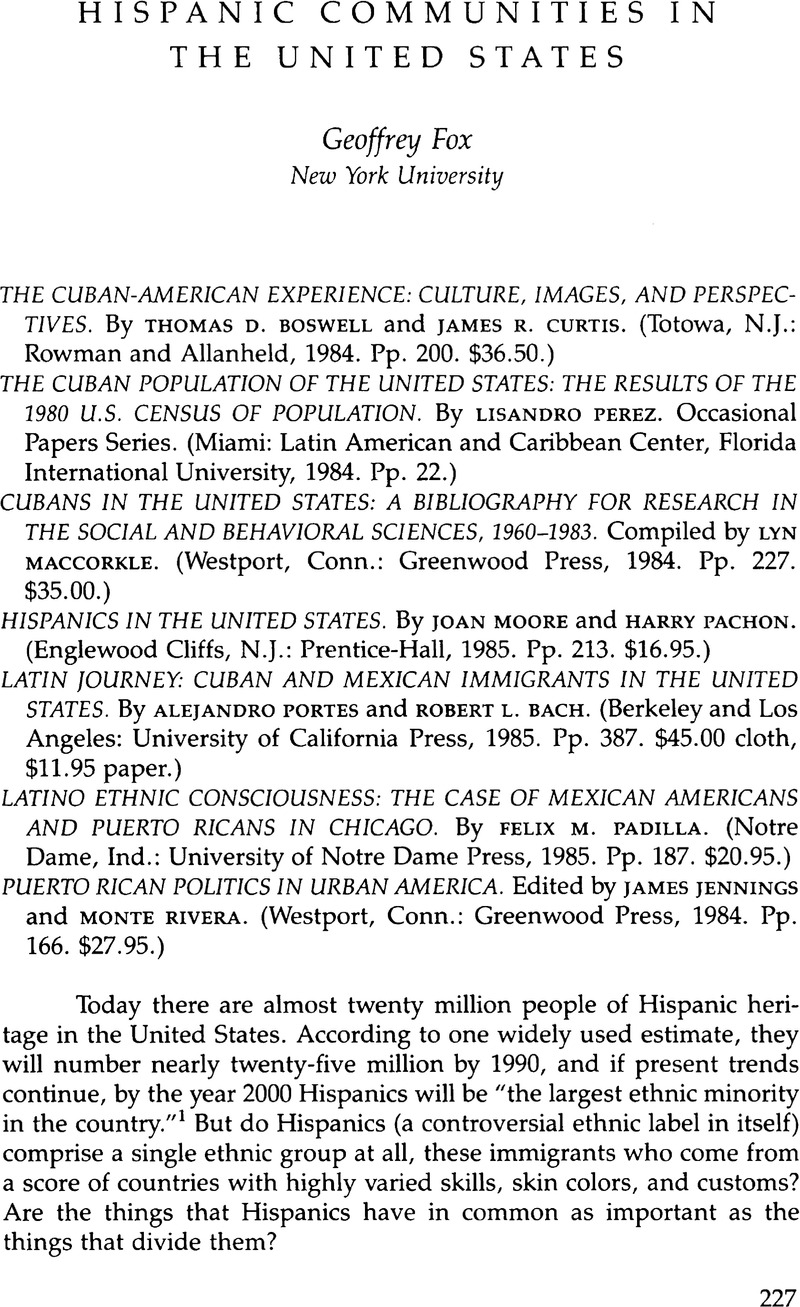No CrossRef data available.
Published online by Cambridge University Press: 12 October 2022

1. The Hispanic Almanac (New York: Hispanic Policy Development Project, 1984), 22.
2. Since this review was written, Areíto has reappeared in Miami.
3. Juan Valdés Paz, “La integración de la comunidad cubana en los Estados Unidos: el proceso de aculturación,” paper presented at the second Seminario sobre Minorías en los Estados Unidos, held in Havana, 1–4 Dec. 1984, 33–34.
4. Cuadernos de Nuestro América 1, no. 1 (Jan.–July 1984), published in Havana. See Raúl García Buchaca, Lourdes Cervantes, and Rafael Hernández, “La Fundación Nacional Cubano-Americana y la conexión anticubana en los Estados Unidos,” 147–73; and Redi Gomis, “La inmigración cubana de 1980 en los Estados Unidos: revisión crítica de una bibliografía norteamericana sobre el Mariel,” 228–48.
5. See Lloyd Rogler, “The Changing Role of a Political Boss in a Puerto Rican Migrant Community,” American Sociological Review 39 (Feb. 1974), cited by Jennings.
6. Angelo Falcón, personal communication.
7. See Richard Rodriguez, Hunger of Memory: The Education of Richard Rodriguez (Boston: D. R. Godine, 1982).
8. This statement was written before Washington's sudden death. At this writing, it is not possible to determine whether the increased opportunities for Hispanics in Washington's administration will continue under his successor.